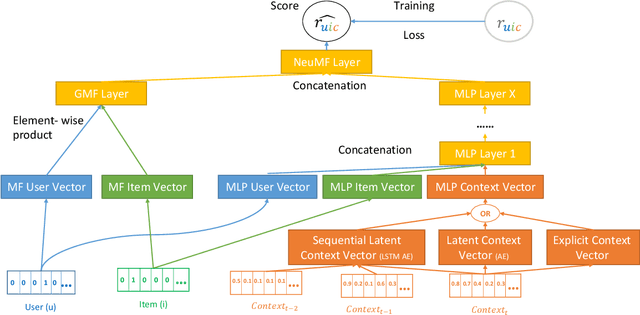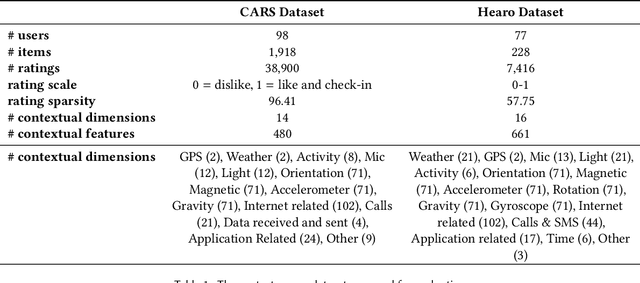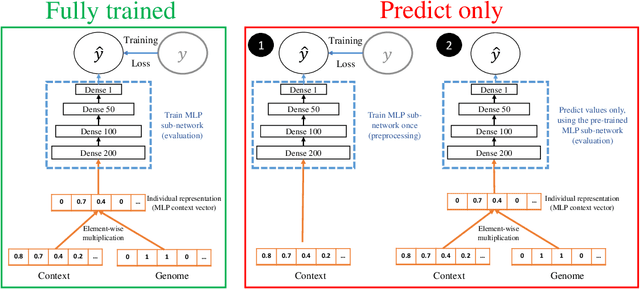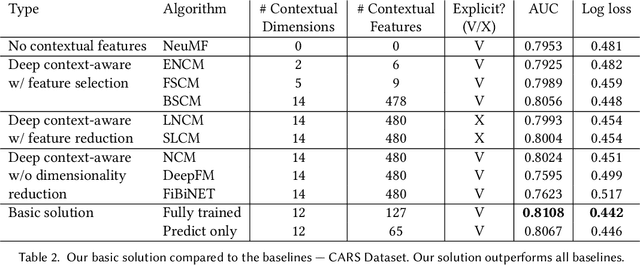Eliad Shem Tov
Evolving Context-Aware Recommender Systems With Users in Mind
Jul 30, 2020



Abstract:A context-aware recommender system (CARS) applies sensing and analysis of user context to provide personalized services. The contextual information can be driven from sensors in order to improve the accuracy of the recommendations. Yet, generating accurate recommendations is not enough to constitute a useful system from the users' perspective, since certain contextual information may cause different issues, such as draining the user's battery, privacy issues, and more. Adding high-dimensional contextual information may increase both the dimensionality and sparsity of the model. Previous studies suggest reducing the amount of contextual information by selecting the most suitable contextual information using a domain knowledge. Another solution is compressing it into a denser latent space, thus disrupting the ability to explain the recommendation item to the user, and damaging users' trust. In this paper we present an approach for selecting low-dimensional subsets of the contextual information and incorporating them explicitly within CARS. Specifically, we present a novel feature-selection algorithm, based on genetic algorithms (GA), that outperforms SOTA dimensional-reduction CARS algorithms, improves the accuracy and the explainability of the recommendations, and allows for controlling user aspects, such as privacy and battery consumption. Furthermore, we exploit the top subsets that are generated along the evolutionary process, by learning multiple deep context-aware models and applying a stacking technique on them, thus improving the accuracy while remaining at the explicit space. We evaluated our approach on two high-dimensional context-aware datasets driven from smartphones. An empirical analysis of our results validates that our proposed approach outperforms SOTA CARS models while improving transparency and explainability to the user.
 Add to Chrome
Add to Chrome Add to Firefox
Add to Firefox Add to Edge
Add to Edge